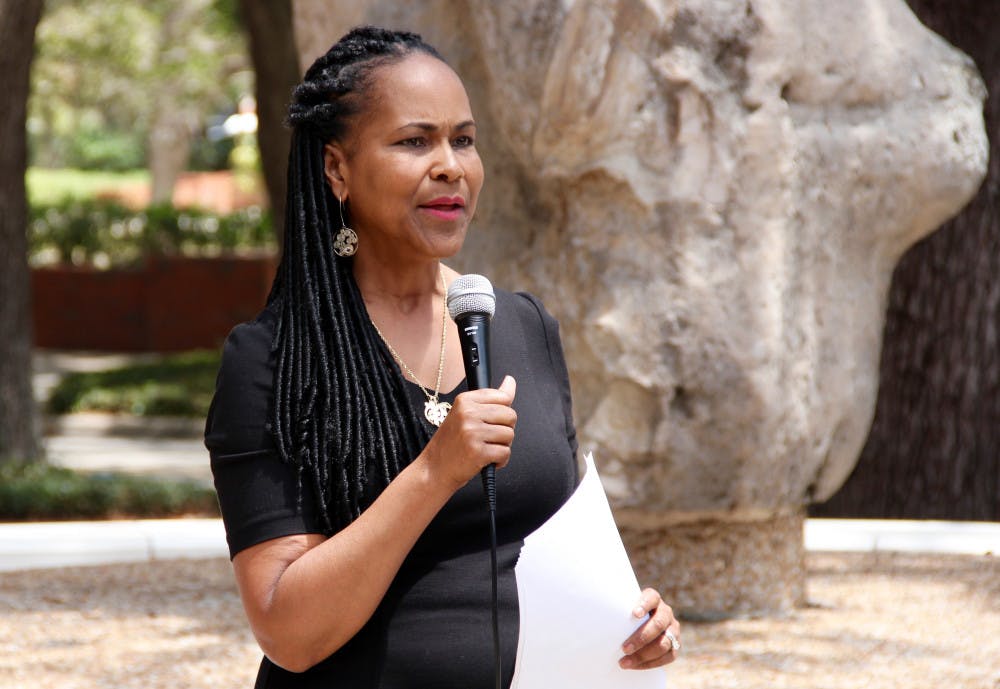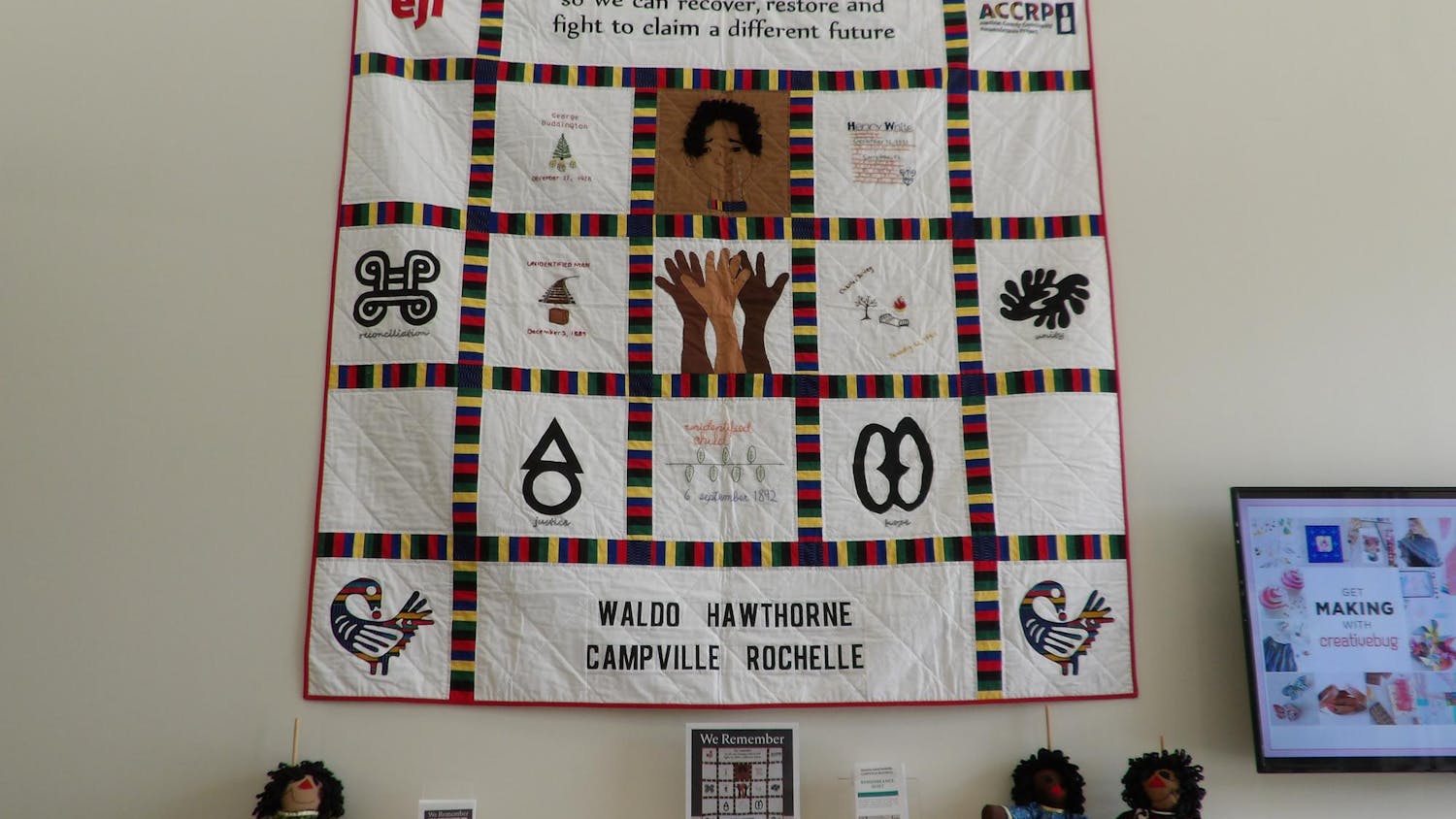After a man intimidated two members of UF’s African American studies program, students and faculty attended a teach-in on Monday to heal and educate others about black history.
Members of the program discussed Black Thursday, a sit-in demonstration organized by the Black Student Union on April 15, 1971, to express its discontent with the university.
About 40 people gathered on Turlington Plaza for the 45-minute talk, which happened days after police removed a man from campus who had been expressing racist views and preventing two faculty members from leaving their office. The man, Thomas Kelly, was banned from campus.
Patricia Hilliard-Nunn, an African American studies professor, said she planned the teach-in to commemorate the recent 46th anniversary of Black Thursday, not because of the confrontation.
“We just want to teach and move on,” she said.
During the talk, professors spoke about how students in 1971 refused to leave former UF President Stephen C. O’Connell’s office after he would not listen to their demands regarding the university’s treatment of black students and faculty.
The protest ended in the arrest of 66 students, 60 of whom were placed on academic probation, according to UF’s website.
African American studies program Director Sharon Austin, one of the women Kelly confronted, said the incident shows the need to educate people about the African-American community.
“Everyone benefits from diversity, not just people of color,” she said.
Since the beginning of the semester, UF has been the scene of several racially charged incidents on campus, including the discovery of a noose in a auditorium and the knocking down of the sign in front of Walker Hall, which houses the African American studies program.
UF President Kent Fuchs in a campus-wide email on Monday condemned Thursday’s incident.
“There is no room for threats and fear tactics on our campus,” he wrote.
Contact Paige Fry at pfry@alligator.org and follow her on Twitter at @paigexfry
Patricia Hilliard-Nunn, an adjunct associate professor for UF's department of African American studies addresses ways in which black students and faculty want increased presence on campus. Some of the priorities she listed include actively recruiting 500 more black students, increasing the number of black faculty and establishing a department of minority affairs at the university.






